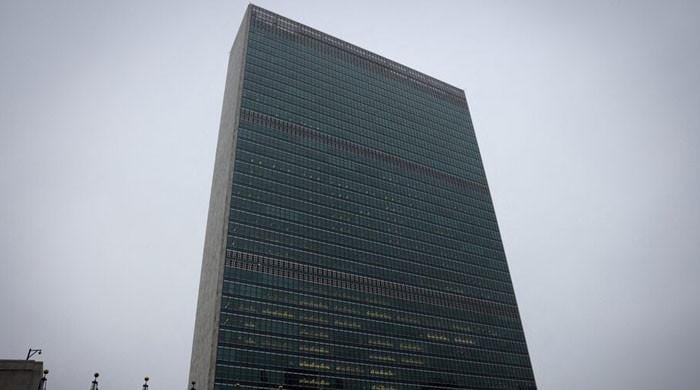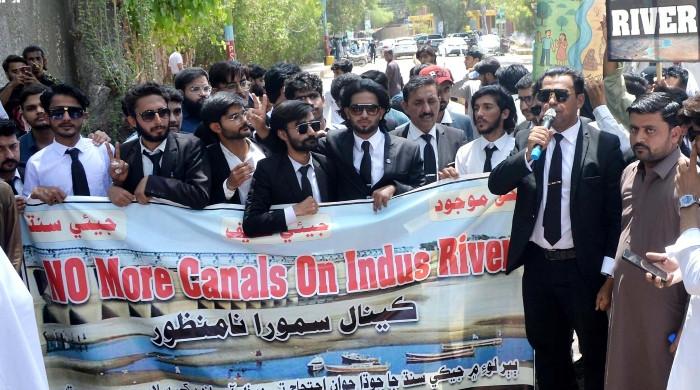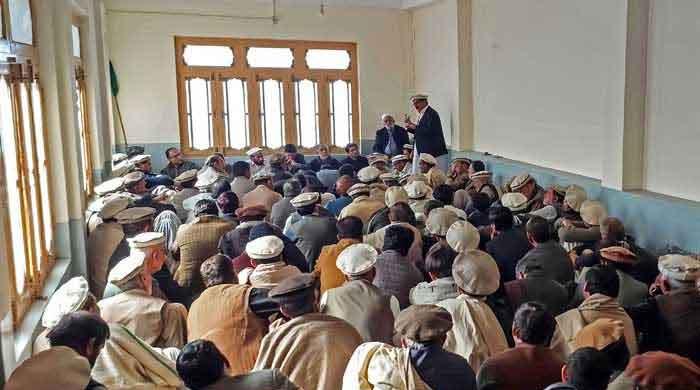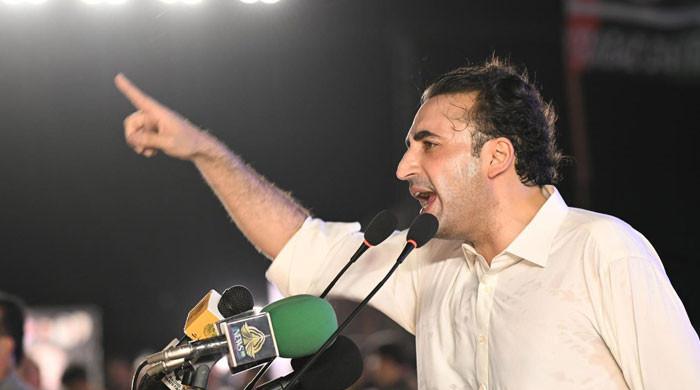Court withdraws Shahid Khaqan Abbasi's arrest warrant in LNG case
Accountability court's judge Nasir Javed also withdraws warrant issued against co-accused Uzma Adil Khan
February 21, 2023
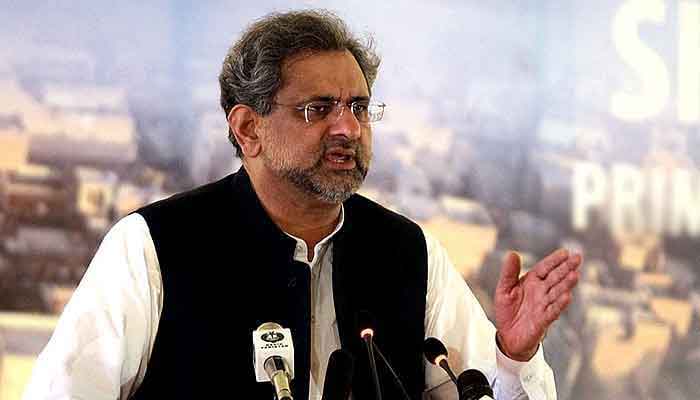
- Lawyer says PML-N leader was coming to court but his arrival was delayed.
- Court also withdraws warrant against co-accused Uzma Adil Khan.
- Court had earlier issued warrant against Shahid Khaqan in LNG case.
An accountability court on Tuesday withdrew the non-bailable arrest warrants against former prime minister Shahid Khaqan Abbasi in the LNG terminal case, just hours after the orders for his arrest were issued.
Earlier today, the court issued arrest warrants against Pakistan Muslim League-Nawaz (PML-N) leader for his non-appearance before the court in today's hearing and failure to file an exemption plea.
However, Shahid's lawyer Zafarullah filed a petition in court to cancel the arrest warrant. Judge Nasir Javed accepted the plea and withdrew the arrest warrants against the former prime minister and co-accused Uzma Adil Khan, who is the ex-chairperson of the Oil and Gas Regulatory Authority (OGRA).
In the petition, Abbasi's lawyer said that the PML-N leader was coming to the court, however, his arrival was delayed. He added that the court issued a warrant for failure to appear on time.
In 2019, the National Accountability Bureau (NAB) had arrested Shahid for alleged corruption while awarding a multi-billion rupee import contract for LNG in 2013 when he was the minister for petroleum and natural resources.
On July 28, 2020, the NAB chairman had approved a supplementary reference against Abbasi, his son Abdullah Khaqan Abbasi, former finance minister Miftah Ismail, ex-chairman of SSGC Board, former CEO of EETPL and MD of PSO, ex-chairman of Port Qasim Authority (PQA) Agha Jan Akhtar, former chairman of OGRA Saeed Ahmed Khan, ex-member of OGRA Aamir Naseem, Uzma, ex-MD of Pakistan State Oil (PSO) Shahid M Islam, and others.
The allegation was that the accused, through a non-transparent process, was awarded the LNG Terminal-1 contract.
The public office holders were accused of misusing their authorities in active connivance with each other to give wrongful gains of Rs14.146 billion to EETL/ETPL/ECL in connection with LNG Terminal-1 of EETL and also caused a wrongful loss of Rs7.438 billion, approximately, for non-utilisation of unused capacity of second LNG Terminal of PGPL from March 2015 to September 2019.
Hence, the total liability amounts to Rs21.584 billion, approximately, till September 2019.
It is pertinent to mention here that further losses to be incurred for the next 10 years will amount to Rs47 billion, approximately, as the said contract will expire on March 2029.
During the period, unexplained deposits of Rs1.426 billion were received in the accounts of Abdullah Abbasi and Rs1.294 billion were deposited in the bank accounts of the PML-N leader between 2013 and 2017, during which the above-said LNG terminal deal was struck.
According to the reference, by concealing the origin of the aforementioned deposits and layering, the accused also committed the offence of money laundering.
Shahid, in 2021, was granted bail by an accountability court that ruled there was never any conflict over non-transparency in the LNG terminal case.
The court, in its detailed verdict on the bail, said that the accountability watchdog’s case is not based on whether or not the former petroleum minister took financial benefit.
“There was no conflict over whether or not there was transparency in the LNG terminal case. The authorised forum gave the approval for the LNG terminal,” said the court.
The court said whether the LNG terminal was developed in the interest of people or not needs further investigation.
“NAB has not been able to prove why there is a need to keep Shahid Khaqan Abbasi in jail,” said the court.








